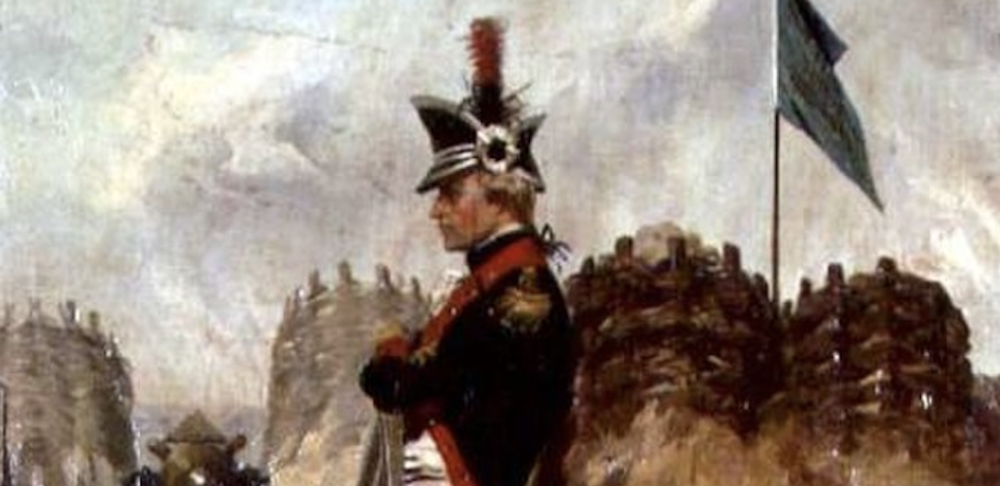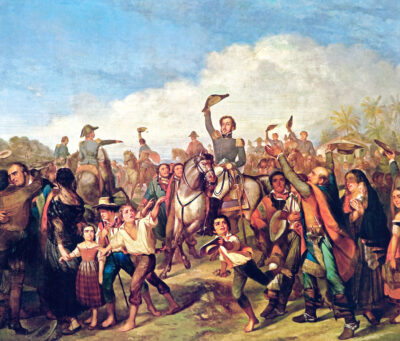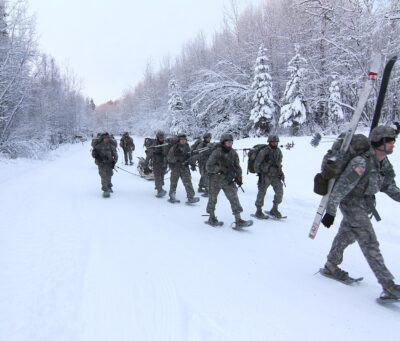What Alonzo Chappel’s Alexander Hamilton in the Uniform of the New York Artillery captures about its twenty-something subject that Mr. Miranda’s musical does not is this: his active stillness. While Miranda’s Hamilton – impatient, combative, colorful – is serious fun to watch, no one wants to watch a character lean against the front of the stage for three hours: silent, head down, mind whirring. And yet, it was precisely that pose, the one captured by Chappel, that truly made Hamilton who he was. Talleyrand’s high praise was that Hamilton had, at the height of his powers, “divined Europe” – but this could only be so because of the long hours spent decades prior, strained reading by candlelight, thinking about the future of his nascent nation. This activity, this posture, defines the Hamiltonian.
So: what is on the minds of the Hamiltons of tomorrow, the rising generation of the American leadership class, today?
First: history, once pronounced dead, is alive and well; in its stead, the coroner has come for the ‘unipolar moment.’ This presses the rising generation to reckon with its American roots; to dust off old lessons for possible futures in which it will feel the pinch of constraints, both domestic and international. Brady Helwig reflects on Alexander Hamilton’s statist grand strategy for the early Republic, one acutely conscious of the tradeoffs and imaginative institutional infrastructure necessary to achieve strategic objectives. Dominic Pino and Shay Khatiri offer contemporary meditations on pressing grand strategic tradeoffs, on overseas commitments and the use of hard power, respectively. Alex Hu reminds us that good grand strategy requires a thoughtful cultural component, encouraging us to ‘rethink’, though not cast aside, our longstanding commitments to the concept of ‘The West.’
Next and necessarily: the rising generation casts its eyes toward the Pacific. Faced with hard choices in the great power contest, Eleanor Ross and Karan Balaji wonder whether the United States and her allies have been bringing knives to gunfights in countering China’s aggressive Belt and Road Initiative. Similarly, Ty Rossow contends that lassitude in U.S. geoeconomic policy can be traced to overmuch reliance on the strength of our nuclear deterrent. Indeed, these questions of comparative political economy are all-encompassing; the contest with China will be fought in every domain: the worlds of bytes, of atoms, and of manpower itself. Hannah Delaney, Colin Gray-Hoehn, and James Haynes tackle those three in turn.
Finally: the most critical constraint in the great power contest is that the Americans cannot go it alone, forcing the rising generation to conduct an audit of our alliance system – both in entirely orthodox and heterodox ways. Nick Romanow leads off with a tour-de-force defense of the liberal international order. Daniel Samet contends, similarly, that diplomatic ‘realism’ works hand in glove with an underlying idealism. Kevin Xiao and Carson Maconga close the issue out, carefully considering U.S. foreign aid and how best to support emerging democracies, both from practical and theoretical points of view.
All in all: heads down, brows furrowed, quietly thinking on their nation’s future. Hamilton would no doubt approve.
Your support is critical to our programming on college campuses and in cities across the country. Donate $50 and you will receive a printed copy of The Hamiltonian.



